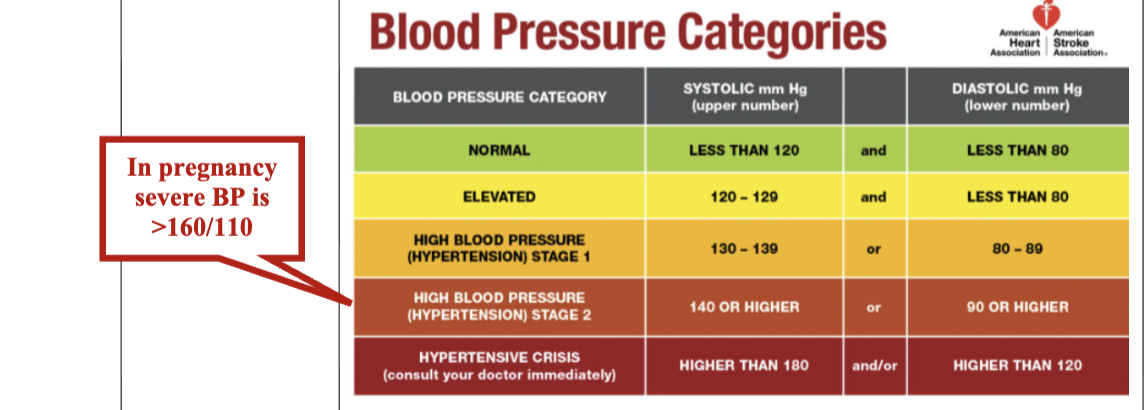reproduction clinical vitals and weight
1/18
There's no tags or description
Looks like no tags are added yet.
Name | Mastery | Learn | Test | Matching | Spaced |
|---|
No study sessions yet.
19 Terms
Adult Temperature expected range
36.0-38.0C or 97.0- 100.4F
if greater than 37.5C (99.5F) has to be retested within an hour
Heart rate Adult
60s to 90s
if out of range look a previous pattern and history, pain status, recent ambilatoin think about why
respiratory rate adult
12-20
20 is ocnsidered high and should be followed up on
blood pressure adult
very important to see how it is trending and how it compares to rpevious assessmentes
systolic: 90-119
diastolic 60-79

o2 saturation adults
92-100%
post surgical range: often >= 95%
temp dips to be expected
if hematocrit is <=30% then the value may not be informative of actual status
most healthy clients greater than 95
pain adults
Mild 1-3
Moderate 4-7
Severe 8-10
expected ranfe: less than clients stated tolderable pain level
if greater than 8 very concerning
typicall charted when patients want to be medicated, this si diff for everyone but greater than 8 interferes with breathing and safety
we always believe the vclients ratings. we do not subsitiute our own assessment. people can be distracted from their pain but it does not decrease pain levels
Temperature newborn
36.5-37.5C or 97.7-99.5F
Recheck the temperature axillary under other arm
• Notify your Resource Nurse
• Best next step is naked baby, skin to skin with mom, blanket over top
• Recheck temp in 30-60 min
• If mom not available then naked baby under radiant warmer, set temp 36.2 to 36.5 on servo warmer (get RN help)
Heart rate newborn
110-160
lower rates closer to term. postdates (42 weeks)
higher rates with activity or preterm
respiratory rate newborn
30-60
grunting? flaring? retracting?
blood pressure newborns
not done on NB
o2 saturation newborn
94-100%
CCHD
CCHD
CCHD (Critical Congenital Heart Disease) & Newborn O₂:
Serious heart defects that cause low oxygen levels or differences between upper and lower body.
Screened at 24–48 hrs with pulse oximetry (right hand + one foot).
Pass: O₂ ≥95% in both & ≤3% difference.
Fail: O₂ <90% OR <95% on repeat checks OR >3% difference.
Early detection prevents shock/collapse when ductus arteriosus closes.
Would you like me to make this into a 1-card flashcard with Q (what is CCHD screening?) and A (the summary)?
measurements Newborn
weight
2.5-4 kg
5lb 8oz - 8lbs 13oz
Length
46-56cm
18-22inches
head
32-37cm
12.5 - 114.5 inches
usually done w/o diaper
scale can be zereod with diaper and hten infant weighed in diaper
preterms are more flexible
term have more tone
if resuscitaed may lave less tone when measured immediately after birth
conversioin of weight
lbs to kg - devide by 2.2
kgs to lbs - multiply by 2.2
lbs to grams - multiply by 454 grams
tsp to ml
1 tsp = 5 ml
(g)grain to mg
1 gr = 60mg
gram to ml and cc (blood loss)
1 gram = 1ml = 1 cc
oz and cups to ml
(intake output)
1 oz = 30ml
one cup = 240 ml
LATCH score
Total Score | Meaning |
|---|---|
8–10 | Good latch — effective breastfeeding |
6–7 | Fair latch — may need some support or guidance |
≤5 | Poor latch — requires significant assistance or reassessment |